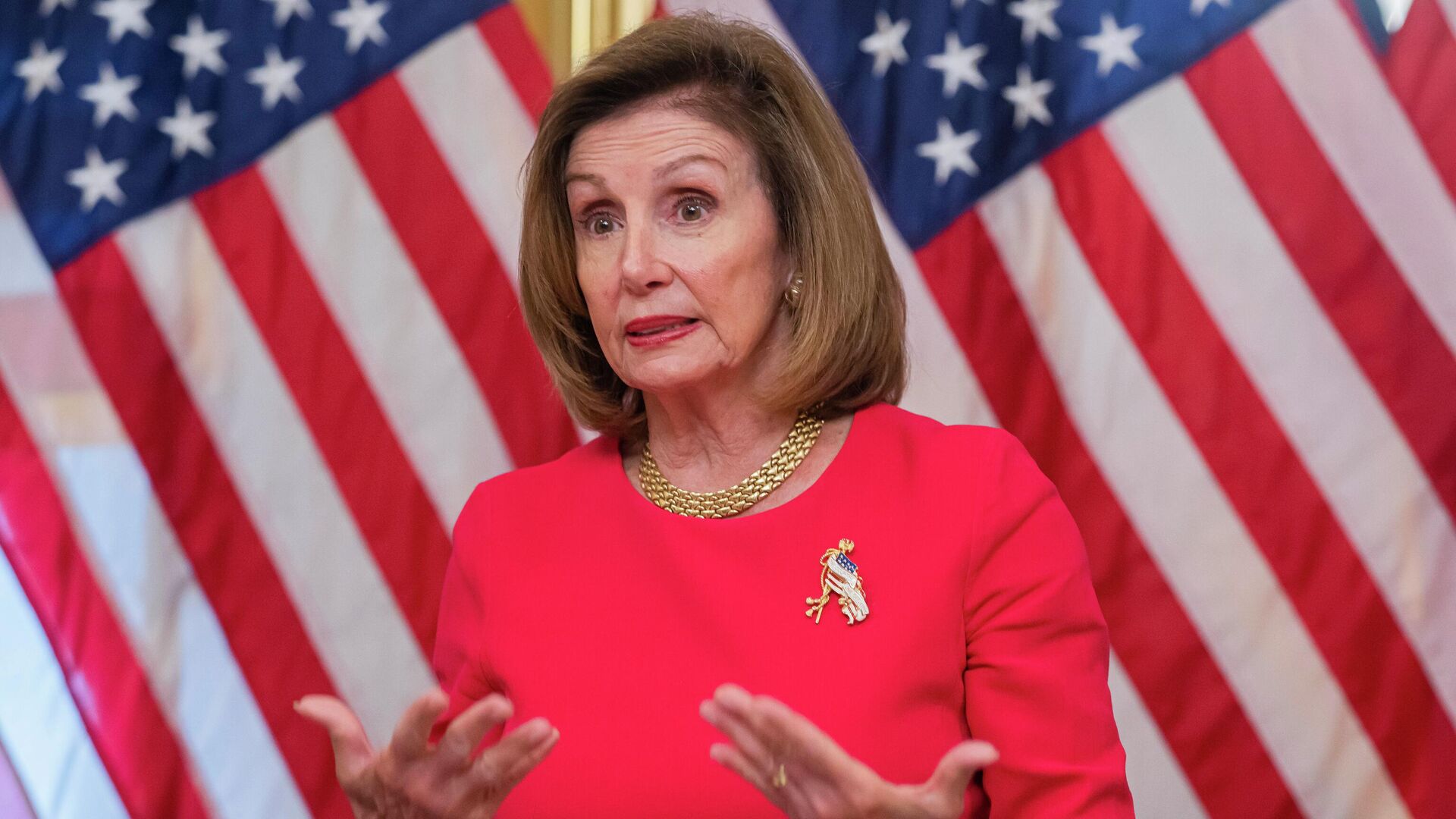Pelosi Ending Speakership May Herald Change of Guard Among House Democrats, Experts Say

© AP Photo / Nathan Howard
Subscribe
MOSCOW (Sputnik) Kirill Krasilnikov - Nancy Pelosi's departure as the leader of the House Democrats may signal a reshuffle within the ranks of Democrat congresspeople with younger members getting a spot in limelight, experts told Sputnik.
The 118th Congress meets on January 3, 2023, with Democrats holding the Senate and Republicans holding the House as a result of the mid-term election in November. Republican House leader Kevin McCarthy is poised to succeed Pelosi in a leadership vote on the first day of the new Congress, even though he has faced opposition from several colleagues who could compromise his bid, due to the party’s slim majority in the lower chamber. Meanwhile, in late November, Democratic members of the US House of Representatives elected Congressman Hakeem Jeffries to lead the party in the lower chamber during the new Congress. While Pelosi decided to cede leadership, she will continue to represent San Francisco in the lower house.
Pelosi's career as a lawmaker spans 35 years, during which she became the first woman elected to serve as the speaker of the United States House of Representatives in 2007, a position she would retake in 2019. During her time as the leader of House Democrats, she spearheaded the passage of the Affordable Care Act (also known as "Obamacare"), impeached then-President Donald Trump not once but twice and visited Taiwan in 2022 despite protests from the Chinese government.
"There's someone who will be – somewhere in this Congress is a woman – future woman Speaker-to-be. I'm honored to be the first, but it will only be a good accomplishment if I’m not the last," Pelosi said at her portrait unveiling ceremony in the US Capitol's Statuary Hall in December, while also reiterating her commitment to representing San Francisco in the next Congress.
While her advocacy of progress made her admired by one half of the country and loathed by the other, few question her successes as the House speaker.
"Pelosi was one of, if not the most, influential Speakers of the modern era in the US. Becoming the first female Speaker was an achievement in itself. But she also managed to hold together a fractious Democratic Party caucus in the House, and thereby to help pass major legislation such as the Affordable Care Act under Obama and major laws enacted over Biden's first two years on matters from climate change to infrastructure," Robert Singh, professor of politics at Birkbeck, University of London, said.
At the same time, some take a more jaundiced view of Pelosi, seeing her as a consummate Washington insider and machine politician par excellence who owes her successes to the country's political system.
"I don't consider Nancy Pelosi to be a particularly significant political figure. She is a mediocrity who happens to have the right connections. Anything she has achieved is simply a matter of being in the right place at the right time," Keith Preston, anarchist theoretician and analyst, opined.
Nevertheless, Pelosi's knack for insider politics came in handy in an era of growing polarization, where she often had to fight on two fronts: against republicans across the aisle as well as with more radical elements within her own party, such as the infamous "Squad" — Alexandria Ocasio-Cortez, Ilhan Omar, Ayanna Pressley and Rashida Tlaib. Despite that, Pelosi managed to achieve an impressive level of party unity. At the same time, her departure as a speaker may signify the end of one age and the beginning of another.
"It does seem to suggest a changing of the guard, with a generational shift in leadership, one that probably will consolidate the left's influence over the congressional party - something that is likely to make bipartisan compromise, whether under Biden or a Republican president, even more difficult to achieve," Singh noted.
Preston, for his part, thinks that there is unlikely to be a change in House Democrats' legislative politics under new leadership.
"It also seems a younger generation of Democrats may be assuming more significant leadership roles. It is doubtful there will be any basic changes to the Democrats' legislative agenda, which is beholden to a range of donor and lobbying interests. And the same contemporary model of partisan politics will likely continue unabated," he concluded.

